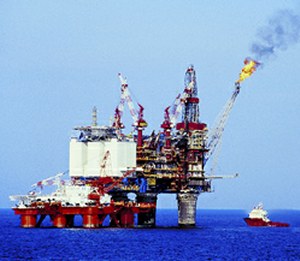 We’ve all seen them, or least we’ve all seen them in photos and TV documentaries, the eternal, infernal flames of the oil-field flare. Now, an international engineering research team has put some figures to the energy and exergy of the venting and burning of combustible gases considered waste and suggests that the gas-flare recovery system adopted by some sites reduces waste considerably even when extra staffing and equipment are taken into account.
We’ve all seen them, or least we’ve all seen them in photos and TV documentaries, the eternal, infernal flames of the oil-field flare. Now, an international engineering research team has put some figures to the energy and exergy of the venting and burning of combustible gases considered waste and suggests that the gas-flare recovery system adopted by some sites reduces waste considerably even when extra staffing and equipment are taken into account.
Sosimo Diaz-Mendez of the Universidad Autónoma del Carmen in Campeche, México, and colleagues have used an Extended Exergy Accounting method to determine whether or not flares are wasteful or not. Exergy is defined as the maximum amount of useful work that can a system connected to a heat sink can do as it approaches equilibrium. Until now, the status quo had been to simply vent the burning waste gases from oil fields to the atmosphere because the gas itself would cost too much in terms of energy to be useful and the low “quality” of the heat generated by burning them makes it too inefficient to cycle it into the energy input for the field. Diaz-Mendez and colleagues have put paid to this little piece of Deceived Wisdom.
The team has looked at not only the materials lost and the heat wasted by flaring but also the greenhouses and other polluting gases emitted, carbon dioxide, NOx and SOx. They assume a thermodynamically idealised situation to make the calculations less complex and thus obtain a measure of both the exergy flux released into the environment by the flare and its “cost” in terms of primary resource equivalents. Their calculations show that if hot gas recycling is enforced the putative, overall environmental damage is reduced to the tune of tens of millions of megajoules. Harm, of course, is not measured only in megajoules of waste but in terms of damage to ecosystems, agriculture and human health.
As I discussed previously on Sciencebase more and more research is pointing to the need for a paradigm shift in attitude and action. “New paradigms provide a new vision, more holistic and based on other paradigms for a more environmentally conscious understanding of the reality in which we live,” the researchers say.
![]() Sosimo E. Diaz-Mendez (2012). Extended exergy accounting applied to the flaring practice in oil fields Int. J. Exergy, 10 (4), 442-453 DOI: 10.1504/IJEX.2012.047506
Sosimo E. Diaz-Mendez (2012). Extended exergy accounting applied to the flaring practice in oil fields Int. J. Exergy, 10 (4), 442-453 DOI: 10.1504/IJEX.2012.047506